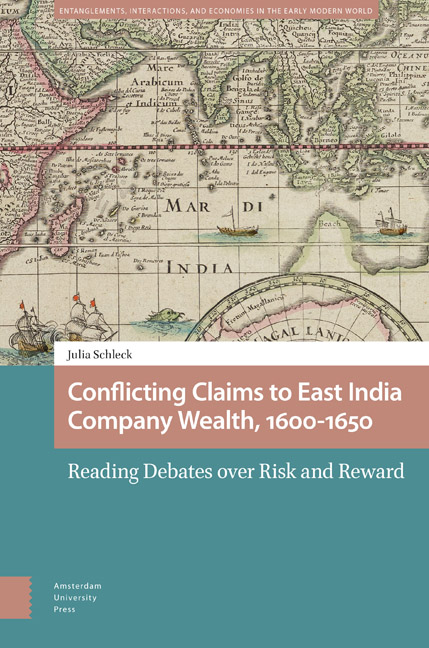Book contents
2 - Justifying Wealth: Arguments over Control of the Trade
Published online by Cambridge University Press: 16 April 2024
Summary
Abstract
This chapter explores the critiques of the East India Company originating from the upper strata of English society, including gentlemen, wealthy London tradesmen, and occasionally even the Crown. These men questioned the dominance of a small group of London merchants over the operations of the Company and its chartered monopoly, forcing Company directors to articulate convincing arguments for the status quo. One of the primary justifications the directors put forth to maintain their power in London was not their social standing, or their hard work, but their expertise. They relied on their unique access to knowledge, both through their experience in global trade and the network of agents already established by the Company abroad to defend their positions of power.
Keywords: East India Company, mercantilism, monopoly charters, early modern merchants, early modern global trade
In addition to justifying the extreme risks taken by its servants and the additional burdens that mariner deaths and other actions taken by the East India Company in support of its trade placed on the poor in England, the Company's leaders also needed to defend the limited distribution of the trade's profits within English society. Only members of the joint stock benefited from the extraordinary riches produced by the eastern trade, and while membership at times included hundreds of prominent citizens, gentry, and members of the nobility, this still left out a great number of England's well-to-do and socially prominent elites. This included the king, whom the Company had repeatedly turned down when he solicited for membership. The king benefited from the trade through customs, but the others excluded from the trade received nothing. Some, like prominent grocers, were acutely aware that the Company's reexport of spices and other luxury goods from the east kept the prices of such goods in England artificially high to ensure East India Company profits. They also resented clauses in the Company's charter which kept out of the trade prominent citizens who had accumulated wealth through other means and wished to expand into long-distance trading voyages. The Company's monopoly on the trade was therefore a frequent target of attack.
- Type
- Chapter
- Information
- Conflicting Claims to East India Company Wealth, 1600-1650Reading Debates over Risk and Reward, pp. 93 - 136Publisher: Amsterdam University PressPrint publication year: 2024



